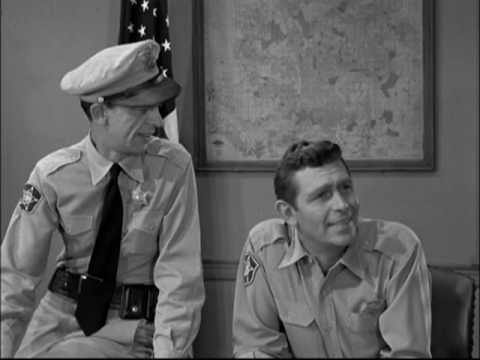
Mayberry, North Carolina, was a town built on simple truths, gentle humor, and an unwavering belief in the fundamental decency of its citizens. Life ambled along at a leisurely pace, punctuated by the rhythmic clang of the blacksmith’s hammer, the low hum of conversation at Floyd’s Barbershop, and the ever-present, low-level thrum of law enforcement provided by Sheriff Andy Taylor and his zealous, if often misguided, deputy, Barney Fife. In such a straightforward world, compliments were usually plainspoken affairs: "That's a fine pie, Aunt Bee," or "You got a good head on your shoulders, son." Yet, it was in the earnest, often clumsy attempts at elevated praise that Mayberry truly shone, delivering a brand of humor so pure, it could only originate from the heart of Deputy Barney Fife.
Of all the well-meaning linguistic tightrope walks Barney ever attempted, none quite reached the peak of hilarious failure as his efforts to commend Helen Crump, the town's beloved schoolteacher. Helen, with her quiet dignity, sharp intellect, and remarkable patience—especially when dealing with the foibles of her often-pompous suitor—was an object of Barney’s deepest admiration. And Barney, ever eager to impress, particularly with his sophisticated command of language, saw every interaction as an opportunity to demonstrate his refined sensibilities.
The specific incident, etched forever in the annals of Mayberry's unofficial history, unfolded one crisp autumn afternoon outside the elementary school. Helen had just orchestrated the annual school play, a heartwarming, if slightly chaotic, rendition of "Little Red Riding Hood" that featured Opie as a particularly earnest wolf and a scattering of smaller children who mostly stood still and looked bewildered. Despite the minor catastrophes—a dropped basket, a tangled cape, and an off-key rendition of "Who's Afraid of the Big Bad Wolf?"—Helen had navigated the performance with grace and unflappable calm.
Barney, ever the keen observer (especially when Helen was involved), had been perched on a bench throughout the play, chin cupped in hand, nodding sagely. He’d witnessed Helen’s steadying hand on a nervous child, her quiet redirection of a misplaced prop, and her overall air of professional composure. This, he determined, deserved more than a simple "Good show, Helen." This demanded eloquence. This demanded Barney.
As the last applause faded and the proud parents began to disperse, Barney sauntered over to Helen, clearing his throat with a sound like grinding gravel. He adjusted his uniform, smoothed his tie, and puffed out his chest, preparing for his verbal masterpiece. Andy, leaning against a nearby oak tree, sensed a Barney-ism brewing and adopted his usual posture of quiet amusement, a faint, knowing smile playing on his lips.
"Helen," Barney began, his voice taking on an official, slightly booming timbre, "I just wanted to say, that performance was… well, it was certainly something."
Helen, ever polite, offered a weary but genuine smile. "Thank you, Barney. The children worked very hard."
Barney nodded, as if this confirmed his profound insight. "Indeed, indeed. But what truly struck me, Helen, was your… your remarkable constancy in the face of such… unpredictability." He paused, searching for the perfect phrase, his brow furrowing in deep concentration. Andy braced himself.
"Yes," Barney continued, a triumphant gleam entering his eye as he found what he believed was the ultimate praise. "Most women, Helen, when faced with such a multitude of, shall we say, fluid variables—a child forgetting his lines, another tripping over a stage flat—would succumb to a fit of emotional vapors. They’d become agitated, perhaps even histrionic." He leaned in, lowering his voice conspiratorially, as if sharing a profound secret. "But you, Helen," he concluded with a flourish, "you remained as unflappable as a… a granite tombstone."
A beat of silence hung in the autumn air. Helen's polite smile faltered, replaced by a look that was a complex blend of confusion, mild offense, and the familiar Mayberry inclination to just let Barney be Barney. A slight twitch at the corner of Andy’s mouth was the only sign he was struggling to contain a full-blown chuckle.
The humor of Barney’s compliment lay not just in his choice of "granite tombstone"—a word utterly devoid of warmth, charm, or any quality typically associated with a beloved schoolteacher—but in the underlying, utterly Barney-esque implication. He wasn't praising Helen for her positive attributes, but for the absence of what he perceived as typical female weaknesses. He was complimenting her by comparing her favorably to a cold, inanimate object that stubbornly refused to "succumb to vapors" like those "histrionic" women. In Barney’s mind, "unflappable as a granite tombstone" was the highest honor for stoicism under pressure, completely oblivious to its rather stark, unappealing connotations for a living, breathing human being.
It was the ultimate Barney Fife compliment: earnest in intent, disastrous in execution, and perfectly reflective of his sincere, yet hilariously miscalibrated, attempts at sophistication. Helen, to her credit, simply blinked, then chuckled softly, murmuring, "Well, thank you, Barney. I… I think." And in that moment, the entire endearing, gentle spirit of Mayberry, with all its lovable quirks and tender absurdities, shone brighter than any polished marble ever could. It was a compliment that failed spectacularly as praise, but succeeded gloriously as a moment of pure, Mayberry gold.